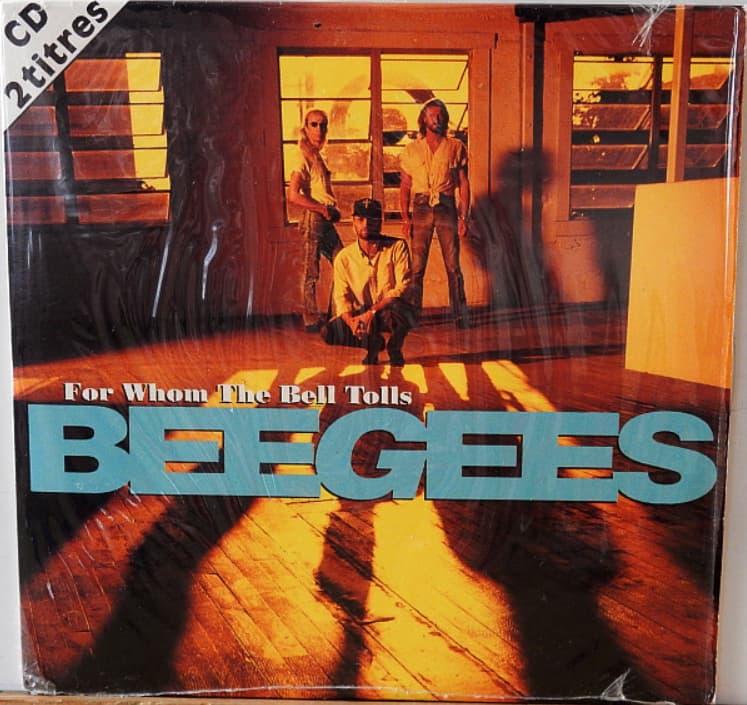
For Whom the Bell Tolls: A Ballad of Love, Loss, and the Human Spirit
In the realm of music, there are songs that entertain, songs that educate, and songs that touch the very soul. “For Whom the Bell Tolls” by the iconic Bee Gees falls into the latter category. This poignant ballad, released in 1970, is a masterpiece of storytelling, weaving a tapestry of love, loss, and the enduring strength of the human spirit.
---> Scroll down for the VIDEO
The song’s title draws inspiration from Ernest Hemingway’s Pulitzer Prize-winning novel of the same name, set during the Spanish Civil War. While the Bee Gees’ track doesn’t delve into the historical context of the novel, it borrows the evocative phrase to paint a vivid picture of its own.
“For Whom the Bell Tolls” begins with a haunting melody, a delicate interplay of piano and strings, setting the stage for Barry Gibb’s emotive vocals. The lyrics, penned by Barry, Robin, and Maurice Gibb, unfold like a cinematic narrative, capturing the raw emotions of a love story amidst the backdrop of loss and despair.
---> Scroll down for the VIDEO
The opening verse introduces the protagonist, a man grappling with the impending departure of his beloved Catherine. The lyrics paint a picture of their tender bond, their shared dreams, and the unspoken fear of separation. The line, “Catherine, for our love I stumble in the night, Never really knew just how much you were my light,” captures the essence of their connection, a love that illuminates the darkness.
As the song progresses, the narrative takes a somber turn. Catherine’s departure is imminent, and the weight of impending loss hangs heavy in the air. The lyrics, “Must I face the world alone, without your hand to hold,” echo the protagonist’s anguish, his fear of facing life without the love that has sustained him.
Despite the overwhelming sorrow, the song glimmers with a flicker of hope. The chorus, “For whom the bell tolls, it tolls for me, For whom the bell tolls, it tolls for thee,” serves as a poignant reminder of the shared human experience of loss and grief. It’s a universal truth that transcends time and circumstance, connecting the protagonist’s personal tragedy to the wider human experience.
In the bridge, the song acknowledges the inevitability of death, the finality of Catherine’s departure. The lyrics, “And when the bell tolls for me, I’ll know that it’s time to go,” carry an air of resignation, yet there’s an undercurrent of acceptance. The protagonist recognizes that death is a part of life, a natural progression that must be embraced.
Despite the somber tone, “For Whom the Bell Tolls” is not a song of despair. It’s a testament to the resilience of the human spirit, the ability to find hope amidst heartbreak and the strength to carry on in the face of loss. The song’s closing lines, “And though I’ll never see you again, I’ll love you till the end,” are a declaration of enduring love, a love that transcends the boundaries of life and death.
“For Whom the Bell Tolls” is a timeless masterpiece, a song that resonates with listeners across generations. It’s a poignant ballad that captures the universality of love, loss, and the enduring strength of the human spirit. The Bee Gees’ masterful storytelling, coupled with Barry Gibb’s emotive vocals, has cemented this song’s place in music history, a testament to the power of music to touch hearts and souls.